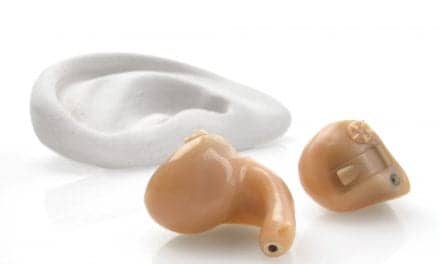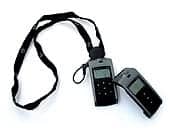
|
May is Better Hearing and Speech Month (BHSM). It’s the prime opportunity each year for every dispensing professional to aggressively market their hearing care services. We work in a relatively small industry that has surprisingly few dispensing offices and practices (about 12,000 in the United States) to serve the 31.5 million people with significant hearing loss. That means the only way to effectively broadcast our message of hearing awareness—including hearing protection, hearing testing, amplification, and aural rehabilitation—is to shout in unison.
Specifically, we need to clearly advocate that: 1) Hearing loss is a serious problem that can negatively impact virtually every aspect of your life, including job performance, wages, love life, health, and family relationships; 2) If you think you have a hearing loss, get your hearing tested; and 3) There are very effective means to overcome hearing loss, including hearing aids, assistive devices, and implants.
The Better Hearing Institute (BHI) recently issued a list of reasons why people should get their hearing checked. As a first step, they’re encouraging all consumers—young and old—to take their Across America Hearing Check Challenge by visiting www.hearingcheck.org and taking a 15-question self-screener. Here’s why everyone in your town should do so:
- Hearing loss can strike at any time and at any age. Of the 31.5 million Americans with hearing loss, 65% are below retirement age (see MarkeTrak VII, July 2005 HR).
- The signs of hearing loss can be subtle. Usually they emerge slowly and are often first noticed by others. Many of today’s Baby Boomers suffer hearing loss from listening to loud music or living in noisy environments (see Vishakha Rawool’s article in this issue).
- Studies show that unaddressed hearing loss can cause irritability, negativism, anger, fatigue, tension, stress, depression, social withdrawal, rejection, memory loss, and loneliness (see the National Council on Aging study in the January 2000 print issue of HR).
- Untreated hearing loss negatively affects household income, on average, up to $23,000 per year depending on the degree of hearing loss. But the use of hearing instruments mitigates the effects of hearing loss on income by about 50% (see the Special Report in the October 2005 HR).
- A Brandeis University study of twins, published in the Journal of Gerontology: Medical Sciences, shows that genes play a significant role in hearing loss experienced by Baby Boomers and their parents (see the November 22, 2007, HR The Insider).
And, while you’re online, visit www.hearingaidtaxcredit.org. The Better Hearing Institute also launched a new Web site (www.hearingaidtaxcredit.org) on April 25 as part of its campaign to spur passage of a federal tax credit of up to $500 per hearing aid for Baby Boomers, seniors, and parents of children with hearing loss. According to BHI, passage of HR 2329 and S 1410 could assist up to 1.2 million children and 11.5 million Americans ages 55 and above in treating their hearing loss. It could help those in need save up to 25% to 35% on the purchase of hearing aids.
About 40% of people who do not use hearing aids are more likely to purchase them in the near future if the tax credit were available, according to a recent BHI national study. Neither Medicare nor the vast majority of state-mandated benefits cover hearing aid purchases. In fact, more than 70% of hearing aid purchases involve no third-party payment at all, which places the entire burden of the purchase on the consumer. The average cost for a hearing aid, including fitting, evaluation, and post-fitting treatment, in 2004 was $1,800. Almost two-thirds of individuals with hearing loss require two devices, increasing average out of pocket expenses to $3,600.
The www.hearingaidtaxcredit.org Web site is a tool that the entire hearing care field can get behind. Visit it yourself today and make sure to click on the “WRITE CONGRESS NOW” box. Also tell your friends, family, and, most importantly, clients/patients to visit the Web site and let our legislators know that HR 2329/S 1410 is vital for US health care.
Karl Storm
Editor-In-Chief





